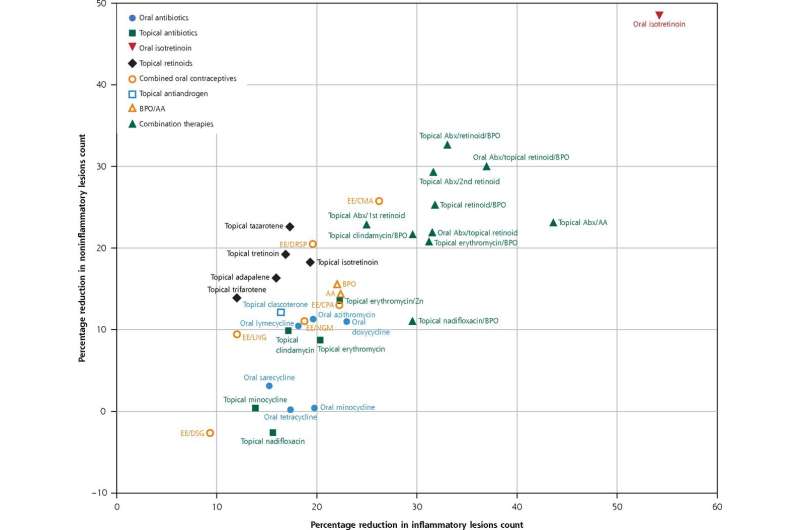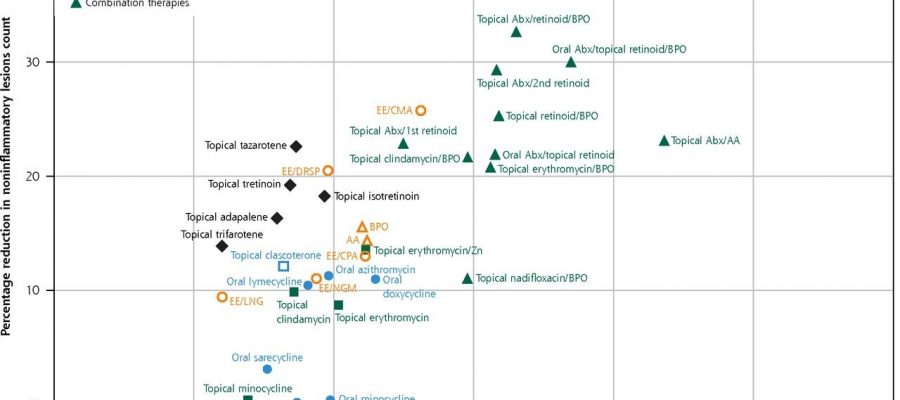
In their comprehensive meta-analysis (comprising 221 randomized controlled trials involving 65,601 patients), researchers investigated the effectiveness of various pharmacological therapies for acne vulgaris across diverse age groups and genders. The articles described 37 interventions, with a median patient age of 20 years old and median duration of treatment of 12 weeks. The median total, inflammatory and non-inflammatory lesion counts were 71.5, 27 and 44, respectively.
The study revealed that oral isotretinoin was the most effective treatment (mean difference 48.41; p-score 1.00), followed in efficacy by a triple therapy containing a topical antibiotic, a topical retinoid and benzoyl peroxide (BPO) (MD 38.15; p-score 0.95) and another triple therapy containing an oral antibiotic, a topical retinoid and BPO (MD 34.83; p-score 0.90).
For monotherapies besides isotretinoin, antibiotics or topical retinoids have comparable efficacy for inflammatory lesions, while antibiotics have less effect on non-inflammatory lesions. Additionally, the authors present a comprehensive comparison of each intervention, providing a valuable resource for clinical decision-making.
Acne is a common skin disease with an estimated global presence of 9.4% and an annual cost of $3 billion in the United States. Although guidelines that recommend medications are generally supported by high-quality, randomized controlled trials, research is lacking on the efficacy of certain medications, particularly when comparing treatment options that have markedly inconsistent drug prescribing patterns among countries and among prescriber specialties.
Based on a comprehensive meta-analysis of 210 articles, comprising 221 trials and examining 37 interventions involving 65,601 patients, researchers have concluded that oral isotretinoin is the most effective treatment for acne. Following closely behind, triple therapies incorporating a topical retinoid, benzoyl peroxide (BPO) and an antibiotic have shown significant efficacy.
For monotherapies, both oral/topical antibiotics and topical retinoids demonstrate comparable effectiveness for inflammatory lesions. However, it is important to note that oral/topical antibiotics exhibit limited efficacy for non-inflammatory lesions and should not be utilized as stand-alone treatments due to the risk of bacterial resistance.
The study is published in The Annals of Family Medicine journal.
More information:
Chung-Yen Huang et al, Comparative Efficacy of Pharmacological Treatments for Acne Vulgaris: A Network Meta-Analysis of 221 Randomized Controlled Trials, The Annals of Family Medicine (2023). DOI: 10.1370/afm.2995
Journal information:
Annals of Family Medicine
Source: Read Full Article
